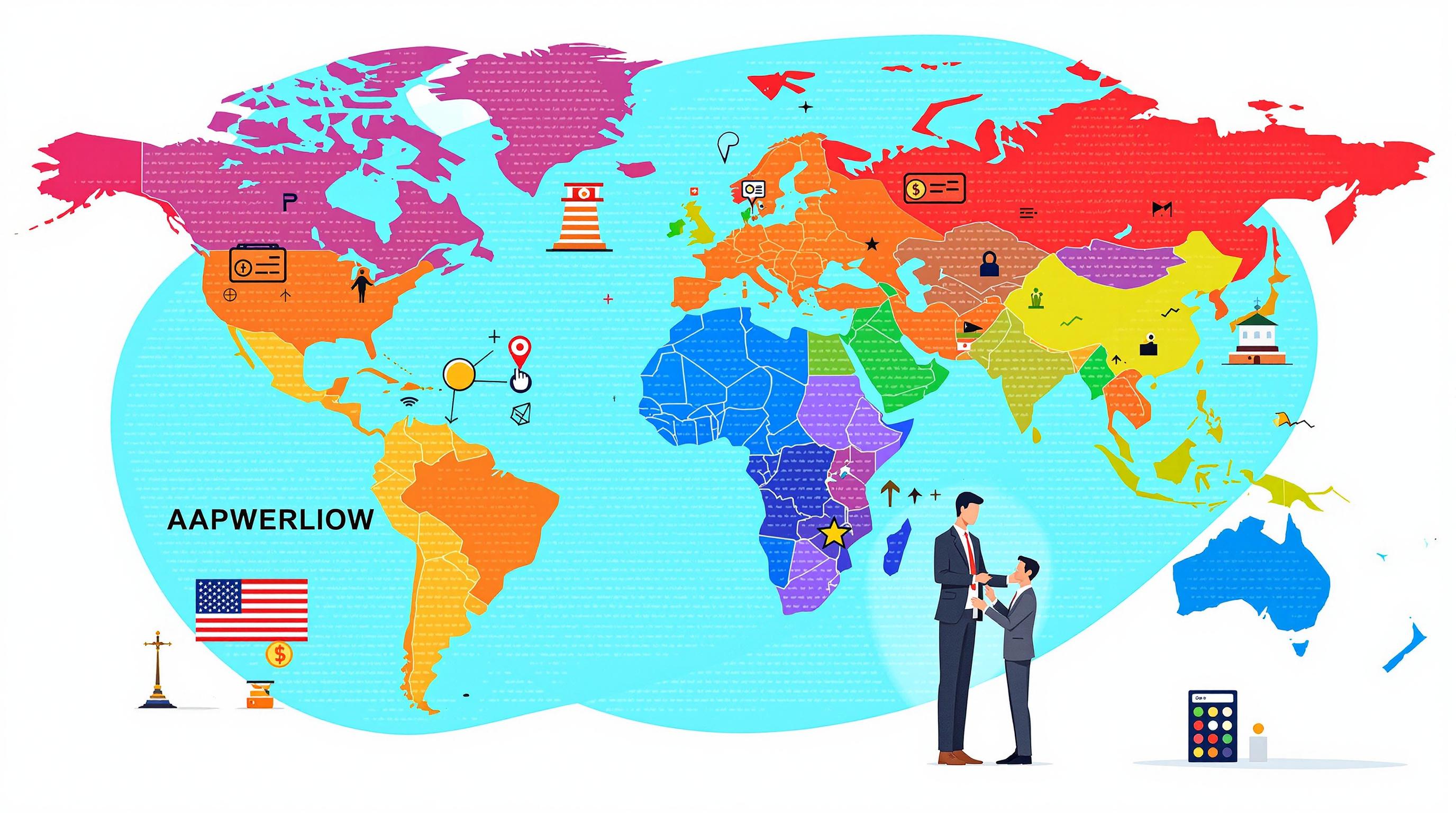Related Articles
- How Mobile Accounting Influences Entrepreneurial Mental Health and Work-Life Balance in Gig Economies
- The Quiet Costs: How Mismanaged Time Data Quietly Undermines Small Business Growth and Decision Making
- Top 5 Trailblazing AI-Powered Financial Reporting Apps Revolutionizing Accuracy and Speed Since 2019
- How Behavioral Economics Shapes Decision-Making in Financial Record Matching and Discrepancy Resolution
- How Subtle Shifts in Supplier Relationships Secretly Affect Your Company's Financial Health and Liquidity Balance
- Top 6 Payroll Solutions Born in the Last Five Years That Are Quietly Taking the Gig Economy by Storm
The Untold Impact of Cultural Differences on Cross-Border Financial Settlements and Account Balances
The Untold Impact of Cultural Differences on Cross-Border Financial Settlements and Account Balances
Cross-border financial settlements and account balances are deeply affected by cultural differences, influencing not only how transactions are processed but also the trust and communication underlying them. This article explores these subtle yet powerful cultural nuances through varied perspectives, examples, and evidence to reveal an often overlooked dimension of international finance.
The Anatomy of a Transaction: Beyond Numbers
It’s easy to think that money talks in one universal language, but really, it whispers in many dialects shaped by culture. Financial settlements are not just mechanical transfers of funds; they are embedded in social contexts that dictate expectations, trust levels, and even the interpretation of contractual terms. For instance, in many East Asian cultures influenced by Confucianism, the concept of guanxi (relationships or connections) plays a key role in business dealings, which can affect timelines and the informal negotiation of settlements.
Different Perceptions of Time and Their Impact
The stereotype that Western businesses prioritize speed and efficiency while some other cultures value patience and relationship-building holds significant weight in cross-border settlements. In a survey conducted by PwC, 63% of respondents from Western countries indicated a preference for rapid transaction settlements, compared to only 37% from various collectivist cultures who prioritized trust-building before finalizing deals (PwC, 2021).
This divergence can lead to misunderstandings, delayed settlements, or strained relations that complicate the formation and maintenance of stable account balances.
Case Study: A Tale of Two Banks
Consider the illustrative case between a US-based multinational corporation and its Japanese counterpart in 2018. The American side, driven by fast quarter-end financial reporting, pushed for immediate settlement of accounts receivable. However, their Japanese partners, adhering to a more deliberate and consensus-driven approach, viewed such haste as a breach of trust, causing delays and temporary account discrepancies.
Eventually, mediation revealed that these delays were less about liquidity constraints and more about differing cultural expectations of financial etiquette — an insight that fostered new guidelines for future dealings.
Numbers Reveal the Gap
Statistics show that approximately 18% of failed cross-border transaction settlements can be traced back to cultural misunderstandings, per a report by the International Finance Institute (IFI, 2022). When cultural literacy is low, even automated processes and smart contracts cannot fully eliminate discrepancies stemming from human interpretation of agreements.
Conversations With Culture: A Young Analyst's Perspective
Hey there! I'm Cody, 24 years old, fresh in the financial world, and I caught on pretty quick to how cultural subtleties sway cross-border transactions. While crunching numbers, I noticed some of my colleagues from different countries interpret deadlines and legal clauses quite differently. Sometimes, the same phrase in a contract means something more serious in one culture than in another. This blew my mind — it made me realize that numbers alone don't close the deal; people do.
The Role of Communication Styles
In some cultures, direct confrontation is avoided to maintain harmony, which can lead to ambiguous financial signals or delayed problem-solving. The indirect communication style prevalent in parts of Asia and the Middle East often contrasts sharply with the direct and explicit style favored in North America and parts of Europe. When managing accounts and settlements, this can make dispute resolution slow and complex.
A Humorous Look at Financial Missteps
Imagine a German financier known for punctuality and precision dealing with an Italian partner whose relaxed approach to deadlines is legendary. Their cross-border settlement meetings might resemble a sitcom: the German, armed with a stopwatch; the Italian, checking his watch but not in a hurry. Both get frustrated, not realizing that both are "right" within their cultural context. Lesson learned: culture can give the financial system a quirky twist that sometimes makes accountants chuckle — or just shake their heads.
Standardization vs. Localization
The tension between enforcing global financial standards (like ISO 20022 messaging standards) and respecting local cultural practices is palpable. While standardization aims to reduce friction in settlements, it can inadvertently erase nuanced cultural rituals, such as the exchange of formal letters or the timing of payments during significant cultural holidays. This friction may temporarily cause imbalanced account statements and settlement disputes.
Financial Technology and Cultural Adaptation
Fintech companies now recognize that successful platforms must go beyond technical efficiency. For example, a leading payment processor recently introduced localized user interfaces and culturally tailored customer support to better align with users’ cultural norms, reducing settlement disputes by 12% within the first year of implementation (FinTech Review, 2023).
A Personal Story From the Senior Desk
Being 67, I’ve witnessed the financial world evolve from paper documents to instant electronic payments. The most striking revelation is that cultural differences haven’t lessened; the stakes have only grown with globalization. I recall negotiating settlement terms in the Middle East, where the concept of honor and face-saving shapes everything. Finance isn’t just about money; it’s a social contract, and ignoring that social fabric risks unraveling deals.
Trust, Risk, and Cultural Underpinnings
Trust varies significantly across cultures and directly influences risk assessments in financial settlements. According to the Edelman Trust Barometer 2022, 75% of respondents in high-trust societies engage more confidently in cross-border trades, while only 43% do so in low-trust environments. This variance affects how account balances are maintained and reconciled, often requiring additional guarantees or escrow arrangements.
Implications for Account Balances
Account balances aren’t static; cultural attitudes toward credit, debt, and financial behavior shape them. In cultures where debt is stigmatized, firms may prioritize paying off balances quickly, even at cost, while others may use credit strategically, influencing the volatility and patterns seen in cross-border account statistics.
Why Awareness Matters
Beyond regulations and technology, cultural competency should be a core skill for financial professionals involved in international settlements. Investing in cultural education and intercultural communication can directly improve transaction success rates and foster healthier account relationships between global partners, preventing costly misunderstandings.
Final Thoughts
Culture is the unseen current in the vast ocean of cross-border finance. By appreciating its power, we transform settlements and account balances from mere numbers into stories of connection, conflict, and collaboration — much like humanity itself.




